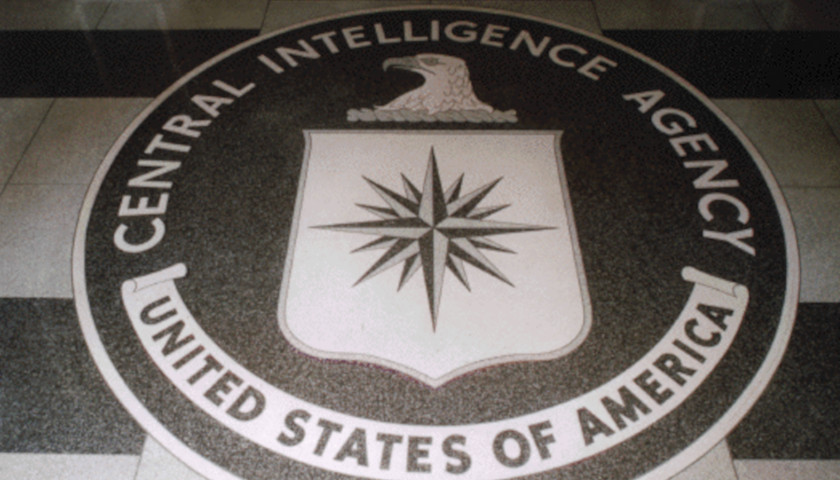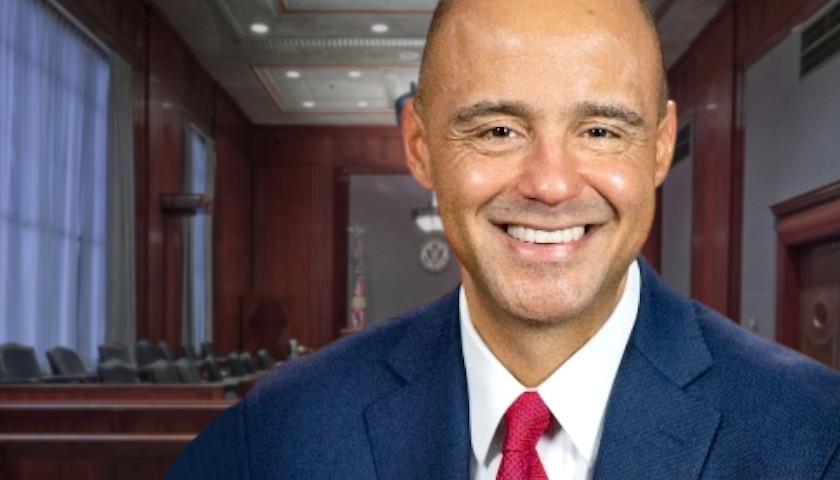A key requirement for whistleblowers to lodge a “Disclosure of Urgent Concern” complaint was secretly eliminated at some point in the past year to allow submissions of second-hand material, it has been revealed. This allowed the August submission of an error-ridden whistleblower complaint against President Donald Trump to proceed, as the whistleblower—who is believed to be a member of the intelligence committee assigned to the National Security Counsel—has admitted to having no direct knowledge of wrongdoing on the part of the president.
A previous version of the form only allowed first-hand whistleblower complaints—not hearsay, rumor, or gossip about presidential diplomacy with a foreign leader.
According to the Federalist’s Sean Davis, the new version of the whistleblower complaint form was not made public until after the transcript of Trump’s July 25 phone call with the Ukrainian president Volodymyr Zelensky and the whistleblower complaint were made public.
The internal properties of the newly revised “Disclosure of Urgent Concern” form, which the intelligence community inspector general (ICIG) requires to be submitted under the Intelligence Community Whistleblower Protection Act (ICWPA), show that the document was uploaded on September 24, 2019, at 4:25 p.m., just days before the anti-Trump complaint was declassified and released to the public. The markings on the document state that it was revised in August 2019, but no specific date of revision is disclosed.
The complaint alleges that President Donald Trump broke the law during a phone call with the Ukrainian president. In his complaint, which was dated August 12, 2019, the complainant acknowledged he was “not a direct witness” to the wrongdoing he claims Trump committed.
A previous version of the whistleblower complaint document, which the ICIG and DNI until recently provided to potential whistleblowers, declared that any complaint must contain only first-hand knowledge of alleged wrongdoing and that complaints that provide only hearsay, rumor, or gossip would be rejected.
“The [Intelligence Community Inspector General] cannot transmit information via the ICPWA based on an employee’s second-hand knowledge of wrongdoing,” the previous form stated under the heading: “FIRST-HAND INFORMATION REQUIRED.”
“This includes information received from another person, such as when an employee informs you that he/she witnessed some type of wrongdoing,” it continued.
“If you think that wrongdoing took place, but can provide nothing more than second-hand or unsubstantiated assertions, [the Intelligence Community Inspector General] will not be able to process the complaint or information for submission as an ICWPA,” the form concluded.
That would have prevented the “whistleblower’s” complaint from moving forward, as his “evidence” of wrongdoing was based entirely on hearsay and publicly available news articles as evidence for many of the allegations, as Davis notes:
The Ukraine call complaint against Trump is riddled not with evidence directly witnessed by the complainant, but with repeated references to what anonymous officials allegedly told the complainant: “I have received information from multiple U.S. Government officials,” “officials have informed me,” “officials with direct knowledge of the call informed me,” “the White House officials who told me this information,” “I was told by White House officials,” “the officials I spoke with,” “I was told that a State Department official,” “I learned from multiple U.S. officials,” “One White House official described this act,” “Based on multiple readouts of these meetings recounted to me,” “I also learned from multiple U.S. officials,” “The U.S. officials characterized this meeting,” “multiple U.S. officials told me,” “I learned from U.S. officials,” “I also learned from a U.S. official,” “several U.S. officials told me,” “I heard from multiple U.S. officials,” and “multiple U.S. officials told me.”
This complaint clearly wouldn’t have passed muster under the original ICIG requirements for “urgent concern” submissions.
Indeed, “the Department of Justice (DOJ) Office of Legal Counsel (OLC) determined in its legal opinion that “the complainant’s submission was statutorily deficient and therefore was not required to be submitted to Congress.”
In an effort to be as transparent as possible, the Trump White House went ahead and declassified and released the document to Congress late Wednesday evening.
“The complaint does not arise in connection with the operation of any U.S. government intelligence activity, and the alleged misconduct does not involve any member of the intelligence community,” the September 3 OLC opinion noted. “Rather, the complaint arises out of a confidential diplomatic communication between the President and a foreign leader that the intelligence-community complainant received secondhand.”
“The question is whether such a complaint falls within the statutory definition of “urgent concern” that the law requires the DNI to forward to the intelligence committees,” the OLC opinion continued. “We conclude that it does not.”
An ODNI official had no comment for Davis Friday when questioned about the secret revision to the whistleblower form.
– – –
Debra Heine is a conservative Catholic mom of six and longtime political pundit. She has written for several conservative news websites over the years, including Breitbart and PJ Media.






Change the form to allow hearsay did not just happen for because they needed to updated the form. It happen because the Trump haters need away to compose a fake complaint and create a false narrative because the Demo-crooks needed to deflect attention away from the upcoming IG report and possible criminal referrals. The Clinton mob will throw Joe Biden under the bus, the DNC will be in disarray, and Hillary get the 2020 nomination as a broker convention nominee.